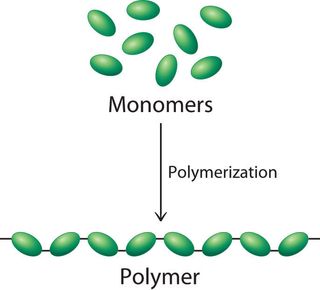Polymers in Construction: Stronger, Lighter in weight, and Extra Resilient
Polymers in Construction: Stronger, Lighter in weight, and Extra Resilient
Blog Article
Discovering the Varied Applications and Advantages of Polymers in Different Industries
Polymers, with their varied range of homes and functionalities, have come to be vital in various sectors, each enjoying one-of-a-kind benefits from their application. From boosting safety and security and efficiency in the vehicle industry to transforming clinical gadgets in the health care sector, polymers play a crucial duty.
Automotive Field Applications
Polymers play a crucial function in boosting the efficiency and sturdiness of numerous components within the vehicle field. One noticeable use of polymers in the automotive industry is in the production of light-weight components.

Health Care Market Advantages
In numerous healthcare applications, the advantages of making use of polymers are extensively identified for their diverse series of helpful buildings. Polymers play a critical duty in the health care industry as a result of their versatility, biocompatibility, and cost-effectiveness. Among the main advantages of polymers in health care is their capability to be customized to particular demands, such as adaptability, longevity, and biodegradability, making them perfect for a variety of medical applications.
Polymer-based products are thoroughly utilized in medical devices, such as catheters, implants, prosthetics, and medication distribution systems, due to their biocompatibility and ability to mimic all-natural cells. These materials can reduce the danger of allergic responses or denials, boosting individual safety and security and outcomes. In addition, polymers are light-weight, making them suitable for wearable medical devices and making certain client comfort.
In addition, polymers enable the development of cutting-edge therapy approaches, such as hydrogels for tissue engineering and nanocomposites for targeted medicine delivery. Their ease of handling and sanitation makes them crucial for keeping high criteria of health in health care setups. Overall, the diverse benefits of polymers contribute considerably to innovations in clinical technology and individual treatment.
Environmental Benefits of Polymers

Furthermore, polymers can find more contribute to power savings because of their lightweight nature. In industries such as transportation, lightweight polymer materials can help lower gas intake and greenhouse gas exhausts. Furthermore, polymers can enable the development of energy-efficient products such as insulation materials that boost energy preservation in buildings.
Additionally, polymers play an important role in reducing water pollution. The usage of polymer-based filtering systems can properly get rid of contaminants and impurities from wastewater, guarding water sources and communities. In general, the ecological benefits of polymers make them useful assets in promoting sustainability and environment-friendly practices across various markets.
Polymers in Electronics and Technology
Considering the raising demand for cutting-edge and sustainable remedies in contemporary sectors, the integration of innovative polymer technologies in the realm of electronics and modern technology has emerged as a critical method for driving efficiency and performance. Polymers have changed the electronics sector by enabling the manufacturing of lighter, more versatile, and long lasting electronic tools. From mobile phones to medical devices, polymers play a critical function in improving product design and performance.
One significant benefit of polymers in electronic devices is their shielding buildings, which help shield fragile digital components from ecological variables and electric disturbance. In addition, polymers are necessary in the advancement of versatile screens, wearable technology, and printed electronics, offering limitless possibilities for developing smart and interconnected gadgets.
Furthermore, the use of polymers in electronic packaging has caused advancements in miniaturization and thermal management, enhancing the overall efficiency and dependability useful reference of digital systems. As modern technology continues to develop, the adaptability and flexibility of polymers will most certainly drive better development in the electronic devices industry, forming the future of technology.
Function of Polymers in Building and Facilities
The assimilation of innovative polymer materials in building and construction and infrastructure projects has revolutionized the means structures are designed and constructed in contemporary times. Polymers offer countless advantages in the construction market due to their adaptability, sturdiness, and cost-effectiveness. One crucial function of polymers in building is their use in layers and sealants, providing protection versus environmental variables such as wetness, UV radiation, and corrosion. In addition, polymers are utilized in the production of lightweight and high-strength composite materials, boosting the structural integrity of structures while lowering general weight.
Moreover, polymers play a crucial function in sustainable construction techniques by making it possible for the advancement of energy-efficient structures. Insulating products made from polymers help manage indoor temperatures, minimizing the need for heating and cooling systems and inevitably decreasing energy usage. In addition, making use of polymer-based composites in framework jobs such as bridges and roads enhances their longevity and decreases upkeep expenses. Overall, the unification of polymers in building and construction and infrastructure displays their significant effect on modern-day engineering methods.
Verdict
In verdict, polymers play a critical function in various sectors such as auto, healthcare, environmental, electronic devices, and building and construction. From enhancing fuel performance in vehicles to boosting clinical gadgets, polymers see this website use numerous advantages.
Report this page